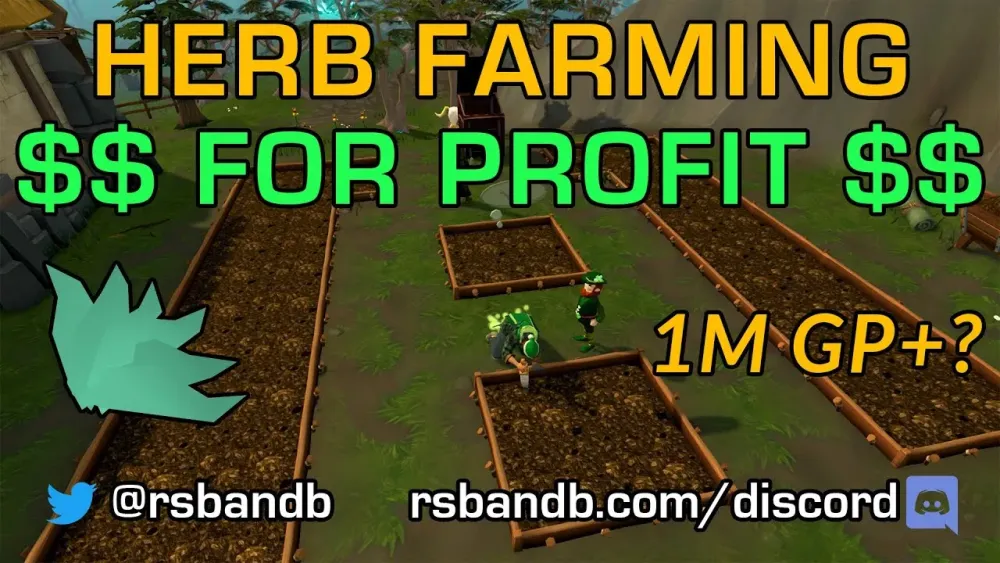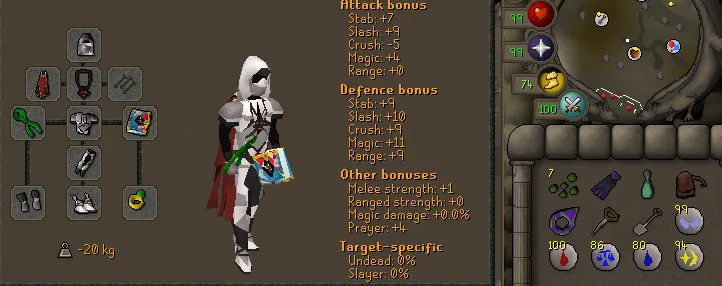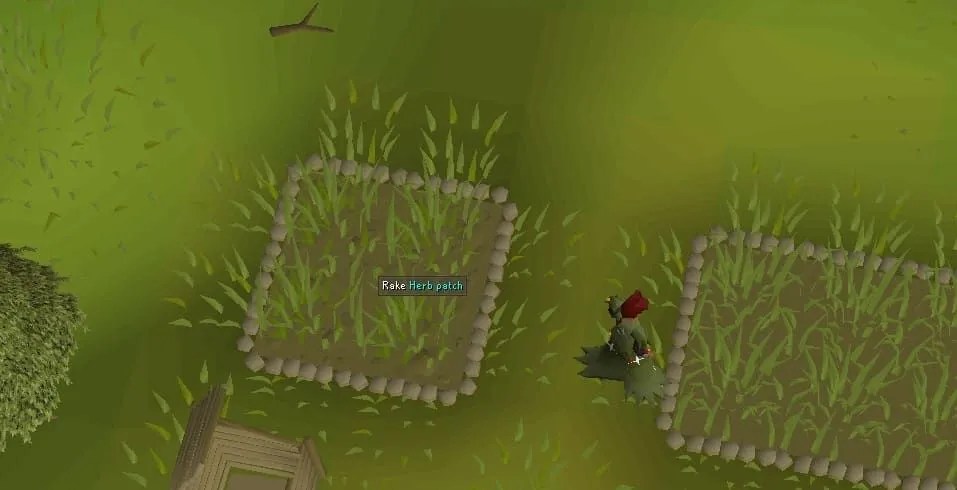Your cart is empty
Ultimate OSRS Farming Herb Guide: Tips and Strategies for Success

Old School RuneScape (OSRS) offers players a rich and engaging farming experience, allowing them to cultivate various crops, particularly herbs. Farming herbs not only provides a steady income but also plays a crucial role in crafting potions and boosting skills. This guide aims to equip players with essential tips and strategies to maximize their herb farming efficiency and profitability in OSRS.
Herbs in OSRS are a vital component for players interested in Herblore, as they are primarily used to create potions, which can enhance stats, heal, or provide various effects. Each herb has specific uses, and understanding these can significantly impact your farming strategy. The most commonly farmed herbs include Guam, Marrentill, Tarromin, and Ranarr, among others. Each herb can be grown in specific patches, and knowing the best patches and their locations can save time and increase yield.
Herbs generally take between 60 to 90 minutes to grow depending on the type and the player’s level. Players should consider using the right farming tools, such as spades and supercompost, to protect their crops from diseases and increase their yield. The use of supercompost not only prevents disease but also increases the chance of receiving multiple herbs per harvest.
Additionally, players should be aware of the herb’s growth stages: planting, growing, and harvesting. During the growing phase, it’s essential to check on the crops regularly to ensure they remain healthy. Players can also use the Farming skill to pay attention to the growth cycle and maximize their harvests. Each herb requires a certain Farming level to plant, and as players level up, they can access better herbs that yield more profit.
Moreover, herbs can be found in various locations across Gielinor, including the Taverley, Ardougne, and Kourend regions. Some patches are more advantageous due to their proximity to banks or teleportation methods. Utilizing the farming contracts from the Guilded Farmer in the Farming Guild can also provide additional rewards, including seeds and experience, which can enhance herb farming efficiency.
In summary, understanding the various herbs, their uses, and the best farming practices can lead to significant success in OSRS farming. By focusing on efficient planting, utilizing supercompost, and strategically choosing herb patches, players can maximize their yield and benefit greatly from their herb farming endeavors.
Choosing the Right Herbs to Farm

When it comes to farming herbs in Old School RuneScape (OSRS), selecting the right herbs is crucial for maximizing your efficiency and profit. Not all herbs are created equal, and understanding which ones to focus on can make a significant difference in your farming results.
Here are some key factors to consider when choosing herbs to farm:
- Level Requirements: Different herbs require different levels of Farming to plant. For instance:
- Market Demand: Keep an eye on the Grand Exchange prices. Herbs like Ranarr and Torstol are consistently in high demand for potions, making them lucrative choices.
- Growth Time: Some herbs take longer to grow than others. For instance, Saranthium takes 80 minutes, while other herbs like Guam take only 35 minutes. Faster-growing herbs allow for more cycles in a given timeframe.
- Profit Margins: Calculate the cost of seeds, the time involved, and the potential sale price. Herbs that yield high profit margins after considering these factors should be prioritized.
| Herb | Farming Level |
|---|---|
| Guam | 1 |
| Harralander | 20 |
| Ranarr | 40 |
| Toadflax | 50 |
By carefully evaluating these aspects, you can make informed decisions about which herbs to farm, leading to greater success and profitability in your OSRS farming endeavors.
Essential Farming Equipment and Tools

To efficiently farm herbs in OSRS, having the right tools and equipment at your disposal is essential. Not only do they make the process smoother, but they also increase your chances of success. Here’s a rundown of the must-have items for any aspiring herb farmer.
- Seed Dibber: This tool is essential for planting your seeds. You can purchase one from any farming store or obtain it as a drop from certain monsters.
- Gardening Trowel: Used for raking and cleaning your farming patches, the gardening trowel is another essential tool. It’s also easy to obtain from farming shops.
- Watering Can: While you don’t need to water herbs, having a watering can is useful when farming other plants. You can fill it at any water source in the game.
- Super Compost: This is an important item to increase your chances of obtaining more herbs per harvest. You can create super compost by mixing regular compost with various organic materials.
- Farming Gloves: These gloves, which can be obtained from the Farming Guild, provide bonuses when farming, making your experience more efficient.
It’s also a good idea to familiarize yourself with the locations of herb patches, as well as utilizing teleportation methods to save time. For instance:
- *Lunar Diplomacy: Use the spell to teleport to the Farming Guild.
- Teleportation Tablets*: Bring these along for quick access to other key areas.
With the right tools and equipment, you’ll be well on your way to becoming a successful herb farmer in OSRS!
5. Optimal Farming Locations and Strategies
Choosing the right location for farming is crucial in Old School RuneScape (OSRS). Different areas provide unique advantages, whether it be proximity to a bank, higher yield rates, or access to specific herbs. Here are some optimal farming locations along with effective strategies:
- Falador Herb Patch: This location is close to the Falador East bank. It’s perfect for players who want quick access to a bank while farming. Be sure to utilize the nearby farming guild for added benefits.
- Taverley Herb Patch: Located near Taverley, this patch is relatively safe and offers good accessibility. It’s also close to a nearby bank, making it convenient for herb collectors.
- Ardougne Herb Patch: This is considered one of the best farming spots due to its close proximity to the Ardougne teleport and the bank. Plus, the nearby market can bring in some extra gold!
- Farming Guild: The Farming Guild boasts multiple patches and is tailored for serious farmers. It also has its own bank and provides access to farming enhancements.
When farming, consider these strategies:
- Use Super Compost: It increases your yield and decreases the chance of disease.
- Pay attention to Growth Time: Some herbs grow faster than others, so plan your farming trips accordingly.
- Utilize Teleports: Quick access to your farming spots will save you time and improve efficiency.
6. Leveling Up Your Farming Skill
Leveling up your Farming skill in OSRS doesn’t have to be a grind. With the right techniques and strategies, you can enhance your Farming experience efficiently. Here’s a guide on how to level up effectively:
- Start with Easy Crops: Begin with low-level crops like potatoes or onions. These have quick growth rates and can help you gain experience rapidly.
- Participate in Quests: Many quests reward Farming experience. For instance, completing the quest “The Garden of Tranquility” provides a substantial boost.
- Utilize Farming Contracts: Once you reach level 25, farming contracts can provide consistent experience and rewards. They offer a variety of tasks that help with leveling.
Here’s a simple table for reference on crops and experience:
| Crop | Level Required | Experience Gain |
|---|---|---|
| Potato | 1 | 5 |
| Onion | 1 | 5 |
| Herb (Any) | 5 | 10 |
| Ranarr Weed | 25 | 15 |
Lastly, remember to keep your farming tools upgraded, such as the enchanted secateurs, which provide a yield boost. Happy farming!
7. Using Herb Seeds and Managing Your Inventory
When it comes to farming in Old School RuneScape (OSRS), understanding how to effectively use herb seeds and manage your inventory is crucial for maximizing your efficiency and profit. Here’s how to do it right:
- Selecting the Right Seeds: Start by choosing the right herb seeds for your farming level. Popular choices include:
- Snapdragon seeds (Level 61)
- Torstol seeds (Level 85)
- Ranarr seeds (Level 32)
- Inventory Management: Keep your inventory organized. Here’s a simple checklist:
- Herb seeds
- Spade
- Supercompost (to increase yield)
- Teleportation items (to quickly access farming patches)
- Farm Patch Locations: Familiarize yourself with the various herb patch locations:
- Planting Strategy: Always plant your seeds as soon as you can, and consider using the Farming Guild for quicker access to higher-level seeds.
Lastly, don’t forget to check the health of your plants regularly. Using water and fertilizers can significantly improve your yield. With these practices, you will streamline your herb farming process!
8. Profit Maximization: Selling and Trading Herbs
Once you’ve harvested your herbs, the next step is to maximize your profits by selling and trading them effectively. Here’s what you need to know:
- Market Research: Always check the Grand Exchange prices before selling your herbs. Websites like RSBuddy can help you track price trends.
- Timing Your Sales: The time of day can affect herb prices. Consider selling during peak playing hours when demand is high.
- Bulk Selling vs Individual Sales: Decide whether to sell in bulk or individually based on market conditions. Bulk selling can attract quick sales but may yield lower prices.
- Trading with Players: Don’t overlook player-to-player trading. Use the in-game chat to negotiate deals, especially for rare herbs.
- Consider Herb Packs: If you have a surplus, consider creating herb packs to sell as bundles, which can attract more buyers.
By implementing these strategies, you can effectively navigate the OSRS market, ensuring that your hard-earned herbs translate into maximum profit. Happy farming!
9. Common Mistakes to Avoid in Herb Farming
Herb farming in OSRS can be a rewarding endeavor, but it’s easy to trip up along the way. Here are some common mistakes players make, along with tips on how to avoid them:
- Neglecting Disease Prevention: One of the worst things you can do is forget to protect your herbs from disease. Always use plant cures or consider a magic secateurs to boost your yield.
- Overlooking Farming Levels: Make sure your farming level is sufficient for the herbs you aim to grow. Planting herbs that are too advanced for your level is a waste of time and resources.
- Ignoring Growth Times: Each herb has a specific growth time. Check the growth times and plan your farming trips accordingly. Failing to do so can lead to wasted time.
- Not Using Super Compost: Using regular compost instead of super compost can significantly reduce your yield. Always opt for the best compost available to maximize your harvest.
- Skipping the Replanting: After harvesting, don’t forget to replant your herbs! This is a common mistake that can lead to missed opportunities for additional yields.
- Failing to Check for Weeds: Weeds can hinder your herb growth. Regularly check your patches and clear any weeds that may sprout.
- Not Utilizing Farming Contracts: If you’re not taking advantage of farming contracts, you’re missing out on extra rewards and XP. They can make your farming experience more rewarding.
By avoiding these common pitfalls, you can streamline your herb farming and enjoy greater success in your OSRS adventures!
10. Conclusion: Mastering Herb Farming in OSRS
In conclusion, mastering herb farming in OSRS is all about strategy, patience, and a bit of knowledge. Here’s a quick recap of what you need to keep in mind:
| Key Takeaways | Details |
|---|---|
| Choosing the Right Herbs | Focus on herbs that suit your farming level and offer the best profit margins. |
| Effective Planning | Stay aware of growth times and plan your farming sessions for maximum efficiency. |
| Utilizing Resources | Use compost, plant cures, and farming contracts to enhance your yields and experience. |
| Stay Informed | Keep up with updates or changes in the game that may affect your farming strategies. |
With these tips and strategies in your back pocket, you’re well on your way to becoming a successful herb farmer in OSRS. Remember, practice makes perfect, so don’t get discouraged if you hit a few bumps along the way. The thrill of harvesting those lucrative herbs will make it all worthwhile!

